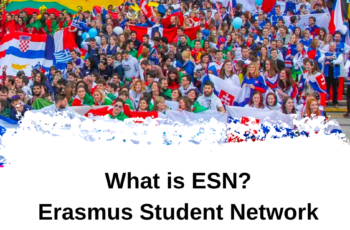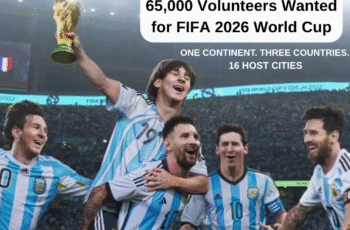We have all heard this; Erasmus+, which we have participated in or that someone in our circle has definitely benefited from, is the largest and most budgetary grant program of the European Union.
What is Erasmus+?
Erasmus+ is the grant program of the European Union that takes place between 2021-2027 and covers the fields of education, youth and sports. Erasmus+ Programme; It aims to enable people to acquire new skills, ensure their personal development and increase employment opportunities.
There are sub-programs related to education, youth and sports as branches of the Erasmus+ program, which are gathered under the main title. Among these sub-programs, the one we hear most about is Higher Education Student Mobility. The exchange program at the university is Erasmus.
However, the Erasmus+ program is not just about “school” Erasmus. There are many programs available under the umbrella of Erasmus+.
What is Erasmus+ Youth Exchange?
Youth Exchange, organized under the umbrella of the Erasmus+ Programme, provides young people from different countries and cultures with the opportunity to exchange ideas and opinions on the determined topic (each project has a topic).
It is a project mobility that young people benefit from, but where you participate as a group during the short-term activity period (it may vary depending on the project, between 5-21 days), where education and foreign language requirements are not required.
Youth exchange projects; It organizes organizations such as youth groups (established by a minimum of 5 young people) or youth associations.
Note: There is no requirement to be a member of the sending organization / association to participate in the youth exchange project. However, the participant must have knowledge about the project subject.
When you are involved in a youth exchange project; You take part in workshops, trainings, group studies and outdoor activities on a specific topic with participants from other program countries or neighboring partner countries.
What conditions are not required to participate in a youth exchange project?
There is no requirement to be a student.
There is no education level requirement.
There is no language level requirement. (but it is important that you know enough to express yourself in activities)
Is there an age range for youth exchange? How many people are participating? How long is the project duration? What expenses are covered?
Anyone between the ages of 18-30 can take part in youth exchange projects. There is a team leader from each country. There is no age limit for the team leader.
The duty of the group leader is; To ensure communication between the group and the host and to ensure communication coordination in case of any questions or problems.
In youth exchange projects, partners from at least 2 programs or neighboring partner countries (youth group, youth association, etc.) come together, and a minimum of 16 and a maximum of 60 participants, excluding group leaders, can take part in the project.
The activity period of the project may vary between 5-21 days.
In project scope; Your travel expenses, accommodation, local transportation, food, visa and project-related expenses are covered.
According to Erasmus+ rules, you can buy tickets 2 days before and 2 days after the project. In other words, you can visit the country and city where the project takes place 2 days before and after. For example, for a project that will take place between March 3 and March 10, you can buy a return ticket for March 1 and return for March 12. The costs of your tickets purchased on these dates will be covered. However, you need to be at the place where the project takes place on the day the project starts and ends and you need to participate fully.
What are the conditions for participation in projects?
To participate in projects, you can follow the pages of the sending organizations. As Europingram, we share the projects published by institutions. You can also access opportunities by following Europingram. If the subject of the project attracts your attention and you think you are suitable for the project, you must apply by the project’s deadline. Project applications are generally made on the form. Europass CV and motivation letter may also be requested.
Participants to be selected among the applications can also be determined only through the form. If the institution does not find the form alone sufficient, it may conduct a telephone interview or request a Skype interview.
You may be asked to prove the information you provided when making your application. So you should write things that have proof in documentation or Skype. In short, it is beneficial to be honest.
When making your application, please write in detail your reason for participating in the project, your motivation, why the project interests you and the contributions you will make.
Join us our telegram group for more opportunities – t.me/erasmusday

